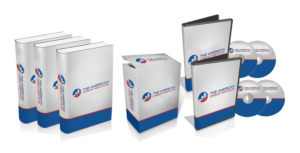Ongoing Maintenance and Repairs
What to Expect
When I first jumped into homeownership, one of the biggest lessons I learned was that maintenance costs are no joke. I was under the impression that once I bought my cozy little nest, the only financial commitment was my mortgage. Well, I quickly realized that homes need love and care, just like we do!
From leaky faucets to creaky floors, the maintenance list can get long. It’s wise to budget for those unexpected repairs, which often come at the most inconvenient times. I suggest keeping aside about one to three percent of your home’s value each year for maintenance. Trust me, it can save you a headache down the road.
Don’t forget about seasonal maintenance too! Things like gutter cleaning, HVAC servicing, and preventative measures like pest control can help avoid bigger issues later. Think of it as an investment in keeping your property happy and healthy.
Finding Reliable Help
One of the best things I did was connect with trustworthy contractors before I even needed them. Here’s the scoop: not every handyman is going to be a gem, and you don’t want to end up with someone questionable when your plumbing goes haywire!
Start asking around for recommendations from friends or local community groups. A solid network will help you get reasonable rates and trustworthy service. Plus, knowing the pros and cons of local services can save you both time and money; I learned this the hard way!
To save money, consider diving into DIY repairs. Yes, I know it may not be for everyone, but learning the basics of home repair can be a fun and rewarding experience. YouTube has become my best friend for this kind of stuff. Just be careful not to take on more than you can handle—you don’t want to create another problem!
Emergency Fund for Repairs
Creating an emergency fund is one of the smartest moves I’ve made as a homeowner. Life is unpredictable, and just when you think everything is smooth sailing, bam! You have a plumbing crisis that needs immediate attention. It can get expensive, let me tell you.
So, when budgeting for homeownership, make sure to add a chunk specifically for emergencies. Aim for a fund that can cover three to six months of critical expenses. This way, if the floorboards give out or the furnace breaks down, you won’t be scrambling to make ends meet.
Remember, planning ahead gives you peace of mind. You can focus on enjoying your home rather than stressing over when the next big bill will arrive. An emergency fund is like a security blanket for your finances as a homeowner.
Property Taxes
Understanding Your Tax Bill
Property taxes can hit like a ton of bricks if you’re not prepared. When I received my first tax bill, I was shocked by the amount—it was a lot more than I expected. It really drives home the point that buying a home isn’t just a one-time expense!
These taxes are usually based on the assessed value of your home, which can fluctuate. That means you not only need to know what the current rate is, but also stay informed of local measures or changes that might increase it. Watch out, they don’t have to send a warning when the tax man comes around!
Learning about your local tax situation can save you a lot of headaches. I’ve learned that being aware of potential property reassessments can give you time to plan your budget. You don’t want any surprises when that bill arrives in the mail!
Budgeting for Taxes
When preparing your budget, don’t forget to factor in your property taxes. This expense is typically paid quarterly or annually, and incorporating it into your monthly budgeting will give you a clearer financial picture.
To make it easier, I suggest setting aside a little each month into a savings account specifically for your taxes. This way, you won’t end up in a panic-mode when the bill is due. Working with spreadsheets or apps can help track your savings too—it’s all about staying organized!
Having that little nest egg saved up for taxes can be a lifesaver. Instead of scraping together cash last minute, you’ll have a cushion that helps you remain stress-free about managing your finances.
Appealing Property Tax Assessments
I learned the hard way that if you think you’re being overtaxed, don’t just accept it quietly. Appealing your property’s assessed value can save you a ton of money. The process can vary by location, but usually, it involves gathering evidence to support your claim.
I suggest looking at comparable homes in your area or consulting a real estate expert who can help gauge if you’re being charged fairly. It might seem daunting, but often it’s worth fighting for if you think you have a case!
Furthermore, reaching out to your local tax office can clarify any questions you have about the appeal process. Don’t hesitate to advocate for yourself; you’re the one paying the taxes, after all!
Homeowner’s Insurance
The Basics of Coverage
One of the first things I snagged after buying my home was homeowner’s insurance. I mean, what’s the point of investing in a property if you don’t protect it? Insurance varies from one policy to the next, but typically it covers damage from incidents such as fire, theft, or natural disasters.
Understanding exactly what your policy covers is crucial. I remember skimming through mine and just signing on the dotted line, but soon after learning there were significant gaps. Take your time to read the fine print; it’s your safety net!
Moreover, be aware of any special coverage your area might require—like flood insurance if you live in a high-risk zone. I learned that lesson the hard way after a heavy rainstorm led to some unexpected leaks.
Shopping for the Best Rates
Don’t just go with the first insurance company you find. When I was shopping for homeowner’s insurance, I took a few extra hours to compare rates and coverage options. Each company can vary greatly, so it pays to do your homework!
Consider working with an insurance agent who can help you navigate the many options available. They’re often knowledgeable and can tailor plans to fit your unique needs, saving you time and stress.
Also, ask about discounts! Many providers offer discounts for things like having a security system installed or being a claims-free customer. Every little bit helps, right?
Regular Policy Reviews
Life changes, and so do our insurance needs. I learned that simply having homeowner’s insurance isn’t enough; it’s essential to review your policy regularly to ensure that it still fits your needs. This includes changes in home value, renovations, or even new belongings you’ve accumulated over the years.
Set a routine to assess your policy—maybe once a year or after significant life changes. You might discover that you need more coverage or, conversely, that you can save by reducing it if your home value has dropped.
By regularly reviewing your policy, you can maintain confidence in your coverage, ensuring that you’re protected without overspending. It’s a win-win!

https://Credit411USA.com
Utilities and Regular Bills
Understanding Utility Costs
When I became a homeowner, I was surprised at how quickly utility costs can pile up. We’re talking water, electricity, gas, trash pickup—each one adds a little more to your monthly bill. It’s essential to factor that into your budget from the get-go!
I recommend reaching out to previous homeowners or the local utility company to get an idea of average monthly costs. This can help you prepare and avoid any shocking surprises when your first bills arrive.
Also, keep in mind that utility costs can fluctuate with the seasons. Using your heater in the winter or air conditioning in the summer will make a noticeable dent in your budget. Being mindful of usage can save you money in the long run!
Managing Utility Expenses
Adopting simple habits can help keep your utility expenses down. I’ve found that things like turning off lights when I leave a room, unplugging electronics not in use, and implementing energy-efficient appliances can all add up to savings.
Another tip is to get acquainted with your utility bills and understand exactly how they are calculated. Knowing what drives those charges can help you be more intentional about your usage.
Maybe even consider signing up for a budget billing plan if your utility companies offer them. It smooths out the ups and downs of costs and lets you predict your monthly expenses more accurately. It’s saved me from any nasty surprises!
Exploring Alternative Energy Solutions
As I settled into my home, I began exploring alternative energy options like solar panels. Investing in solar can have substantial upfront costs, but over time, it often pays for itself through reduced energy bills.
Additionally, check if there are any local or federal incentives available for switching to sustainable energy sources. I didn’t know until I did a little digging, and boy, am I glad I did!
Exploring energy-efficient alternatives isn’t only kind to your wallet but also good for the planet. So, if you have the means, it’s worth looking into how you can make your home more energy efficient.
HOA Fees
Understanding Your Obligations
Another eye-opener for me was realizing the potential costs of Homeowner Association (HOA) fees. If you’re looking at properties in a community with an HOA, those monthly or annual fees can significantly impact your budget.
It’s essential to understand what those fees cover. Sometimes they provide great amenities, but other times they might just maintain common areas. Don’t hesitate to ask current residents about the true value of those fees before diving in!
Keep in mind that some HOAs may increase fees, and I highly recommend reviewing their history to gauge how often this happens. It helps ensure you’re making a well-informed decision about your financial commitments!
Benefits of Living in an HOA
Sure, there are costs, but HOA communities can offer substantial benefits too! Having rules in place can help keep property values up, create a sense of community, and maintain aesthetics in neighborhoods.
For instance, pool maintenance, landscaping, and trash service may all be included in the fees, which can sometimes outweigh the costs. Having someone else handle these concerns, in my experience, has made a huge difference!
Before dismissing HOA communities completely, explore the added perks. An inviting neighborhood can enhance your overall living experience, and being part of a community can feel really rewarding!
Dispute Resolution Processes
However, being a member of an HOA also means dealing with rules and potential disputes. I quickly learned that every community has its regulations, which can sometimes feel overwhelming.
Before moving in, don’t hesitate to look at their rules and processes for handling disputes. Understanding how conflicts are resolved can help smooth out bumps down the road. You want to know that if something arises, you won’t be left hanging without support.
Familiarizing yourself with the HOA dynamics can save a lot of future headaches. You’ll know what to expect and how to prepare for potential challenges down the line, allowing you to enjoy your home more.
Conclusion
So there you have it—homeownership can be a wild ride beyond just the purchase price! From maintenance to taxes, insurance, utilities, and HOA fees, there’s a lot to think about. But the adventure can also be incredibly rewarding!
I’ve learned along the way that being prepared is key. By doing your homework and budgeting wisely, you can navigate these costs smartly and keep your finances in check while enjoying your lovely home.
Remember, there’s no shame in asking for help or seeking advice from others who have blazed this trail before you. Homeownership is a journey, not a race, so take a breath and enjoy the ride!
FAQ
- What are some common ongoing maintenance costs for homeowners?
Common costs can include plumbing repairs, roof inspections, HVAC servicing, and general upkeep of your property. It’s wise to allocate around 1-3% of your home’s value annually.
- How can I reduce my property taxes?
Look into appealing your property assessment if you feel it’s too high. Gathering evidence of comparable sales can help support your case.
- What should I include in my homeowner’s insurance policy?
Your policy should cover damage to your home, personal belongings, liability protection, and depending on your location, perhaps flood or earthquake coverage.
- How often should I review my homeowner’s insurance policy?
It’s a good idea to review your policy annually or after significant changes to your life or home situation occur, ensuring you have adequate coverage.
- Are HOA fees worth the cost?
That depends on the benefits they provide. Amenities, maintenance, and community rules can enhance property value and living experience, but it’s important to assess their value based on your priorities.

https://Credit411USA.com

